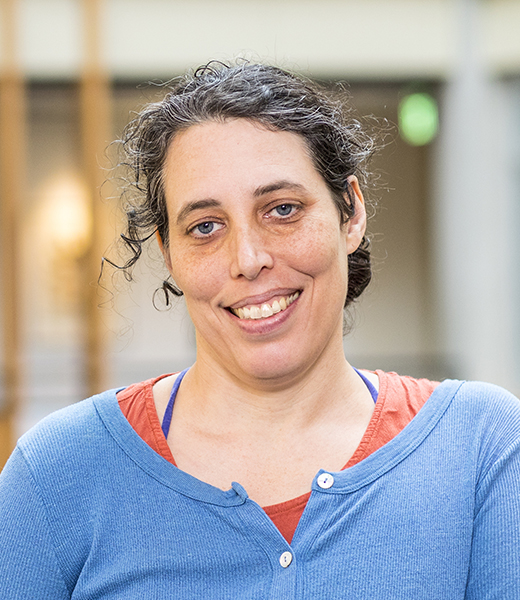Allen School professor Jennifer Mankoff received the 2021 Impact Award from the Association for Computing Machinery’s Special Interest Group on Accessible Computing (SIGACCESS) for her work on “Disability studies as a source of critical inquiry for the field of assistive technology” at the 23rd International Conference on Computers and Accessibility (ASSETS). The paper, which was published in 2010, was the first to describe approaches for bridging the gap between the fields of assistive technology research and critical disability studies. Since then, disability studies have received growing attention at ASSETS as a critical component of research aimed at improving the experiences of people with disabilities and the paper has become an important reading in accessibility courses.
Mankoff, who holds the Richard E. Ladner Professorship in the Allen School and co-leads the Center for Research and Education on Accessible Technology and Experiences (CREATE), co-authored the paper while she was a faculty member at Carnegie Mellon University. Gillian R. Hayes, provost, dean and professor at the University of California, Irvine and Devva Kasnitz, City of New York adjunct professor and emeritus director of the Society for Disability Studies, co-authored the paper.
Studying the individual, cultural, societal and theoretical foundations of the design of disability-related technology, Mankoff and her collaborators looked at two of their own research studies with this new lens. In the first, they considered autism and technology. Initially they focused on designing assistive technology to help care providers, such as helping with early diagnosis. Using the disability studies literature, the team transitioned their focus on designing technology that empowers individual students in the classroom. In their second case study, the researchers looked at computer accessibility. Oftentimes computer simulations are created to give the designer an idea of how their technology might be used by people with disabilities. However, these simulations may not be accurate and still lack the thoughts and feelings of the user with disabilities. The researchers offer alternatives to simulation: involve a small number of people with disabilities much more deeply in the design process or gather data that can be used to test hypotheses rather than create a simulation. Ultimately, the research team recommends using technology “to support empowerment and understanding” of people with disabilities.
“Disability studies theory has changed both my research and my approach to living and working as a disabled person, academic, parent and caregiver,” said Mankoff. “Its lens has helped guide my advocacy and identify moments worthy of constructive change. I am incredibly lucky to have had the chance to work with, and learn from, my collaborators on this paper.”
A follow up paper, “Living Disability Theory: Reflections on Access, Research, and Design” won a Best Student Paper Award at ASSETS 2020, 10 years later. It explores the lived experience of four academics with disabilities, including Mankoff and Kasnitz, and was led by graduate student Megan Hofmann and post doctorate Cynthia Bennett, both at Carnegie Mellon University. The paper focuses on moments when disability was misunderstood and derives three related themes: ableism in research, oversimplification of disability, and human relationships around disability. From these themes, the authors suggest paths toward even more strongly integrating disability studies perspectives and disabled people into accessibility research.
Since the paper’s initial publication, Mankoff joined the Allen School faculty, earned election to the SIGCHI Academy by the ACM Special Interest Group on Computer-Human Interaction and won an AccessComputing Capacity Building Award. She previously was named a Sloan Research Fellow and has earned several faculty fellowships and Best Paper Awards for her work on accessible technology.
Read the SIGACCESS citation here and the research paper here.
Congratulations to Jen and her co-authors!


